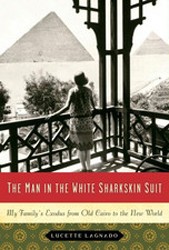Appealing to those interested in issues of exile, migration, marginality, identity, and memory, Nina Lichtenstein shares and explicates the seldom-heard stories of Sephardic women writers who left their native lands for France and Israel in the mid-20th century, contextualizing them within the larger history of the era, including the founding of the state of Israel. Her source materials consist of eyewitness accounts, memoir, secondary academic sources, and translations.
Lichtenstein uses these personal accounts as a jumping-off point to address a range of issues, from the historical and literary classification of narrative, to the familial and personal considerations brought to light in the narratives themselves. She presents her content clearly and expressively, though the sentimentality of the material she’s working with can at times detract from the content.
In the first chapters, Lichtenstein provides cultural and historical background. Drawing from the works of Hélène Cixous, Walter Benjamin, and Yosef Hayim Yerushalmi, she explains that her book fuses together “modern historiography” with “the Jewish experience.” She provides a historical overview of Jews in the Maghreb from the Roman conquest of Judea to the present, ending the first chapter by placing Jewish women within this narrative. She concludes Part I by discussing the place of Jews in colonial Maghreb, including their social and cultural changes, loss of religious and cultural memory, and the effects of nationalist movements in the region.
In subsequent chapters, Lichtenstein discusses issues related to the composition of narrative and the place of Sephardic women in postcolonial discourse, drawing from cultural, literary, and historical themes. She discusses migration, the repression of identity, the eclipse of personal narrative, Jewish narrative, and how these themes make their way into postcolonial discourse. In the six accounts she interprets, she adds her own valuable and sensitive insights about the lives and experiences of the authors.
One point of critique is that Lichtenstein could have chosen to either focus more on history, or on the lives of the Sephardic women themselves. Nevertheless, she has done important work in shedding light on literature and history that has had too little exposure.
Rachael Rose serves as a reviewer for the Jewish Book Council. She also works as a language Instructor at the Berlitz Language Center in Odenton, teaching Hebrew. On the side, she also tutors elementary school math and science.




